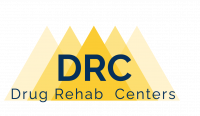Are Antidepressants Bad?

Since the late 1980s, antidepressants have been instrumental in treating various mental health conditions worldwide. Originally prescribed to manage depression, their applications now extend to anxiety disorders, OCD (obsessive-compulsive disorder), and eating disorders.
While antidepressants are generally considered safe and effective, no medical treatment is risk-free. Despite their widespread use, antidepressants may trigger side effects that should not be overlooked.
How Are Antidepressants Used?
Antidepressants are commonly prescribed medications used to treat a variety of mental health conditions. They work by adjusting the levels of neurotransmitters like serotonin in the brain to alleviate symptoms of depression, anxiety, and other disorders.
There are many different types of antidepressants, such as:
- SSRIs (selective serotonin reuptake inhibitors): Examples include fluoxetine (Prozac), sertraline (Zoloft), and escitalopram (Lexapro).
- SNRIs (serotonin and norepinephrine reuptake inhibitors): Examples include venlafaxine (Effexor) and duloxetine (Cymbalta).
- TCAs (tricyclic antidepressants): Examples include amitriptyline (Elavil) and nortriptyline (Pamelor).
- MAOIs (monoamine oxidase inhibitors): Examples include phenelzine (Nardil) and tranylcypromine (Parnate).
- Atypical antidepressants: Examples include bupropion (Wellbutrin) and mirtazapine (Remeron).
Antidepressants are taken once daily in the form of tablets, capsules, or liquids. Antidepressants can be taken in the morning or at night, and with or without food, as directed by a healthcare provider. Dosage and duration of treatment vary depending on the specific medication, the person’s condition, and their response to treatment.
Antidepressants may take several weeks to start working fully, and the full benefits may not be felt immediately. Continue taking the medication as prescribed, even if symptoms improve, to prevent relapse.
Some people may need to try different antidepressants or combinations of medications before finding the most effective treatment.
Healthcare providers closely monitor people during antidepressant therapy to assess effectiveness and monitor for side effects. Dosage adjustments or changes in medication may be necessary based on individual response and tolerability.
Antidepressants may be used alone or in combination with other treatments like psychotherapy or lifestyle modifications to enhance efficacy.
Are Antidepressants Bad for You?
Antidepressants play an important role in treating several mental health conditions and can be life-changing for those suffering from depression, anxiety, and other disorders. That said, people should consider both the benefits and potential drawbacks of these medications.
Benefits of antidepressants include:
- Effective treatment: Antidepressants can significantly alleviate symptoms of depression and improve overall quality of life for many individuals.
- Lifesaving: For some people, antidepressants can be lifesaving, preventing suicidal ideation, and providing hope for a better future.
- Improvement in functioning: By reducing symptoms like sadness, fatigue, and lack of motivation, antidepressants can help people regain the ability to function in daily life and pursue their goals.
Potential drawbacks of antidepressants include:
- Side effects: Antidepressants may cause side effects, ranging from mild to severe, including nausea, weight gain, sexual dysfunction, and increased risk of suicidal thoughts in some individuals.
- Dependence: Some people may become dependent on antidepressants to manage their symptoms, leading to concerns about long-term use and potential withdrawal effects.
- Tolerance: Over time, some individuals may develop tolerance to the effects of antidepressants, requiring higher doses or alternative medications for continued symptom relief.
- Stigma: There is still stigma surrounding the use of antidepressants, which can contribute to feelings of shame or inadequacy in those seeking treatment.
The response to antidepressants varies from person to person, and what works well for one person may not be effective for another.
While antidepressants can provide significant relief in the short term, there are concerns about the long-term effects of prolonged use, including potential effects on brain chemistry and overall health. Open communication, regular monitoring, and informed decision-making are all central to ensuring the safe and effective use of antidepressants.

Are Antidepressants Bad for Your Brain?
Understanding the long-term impact of antidepressants on brain chemistry remains an area of ongoing research.
Some studies have indicated that these medications may promote neuroplasticity, influencing the brain’s ability to reorganize and establish synaptic connections. In essence, antidepressants can play a role in shaping the brain’s structural and functional adaptation over time.
Why Are Antidepressants Bad for You in Some Cases?
In certain cases, antidepressants may have negative effects or be considered harmful for some individuals. Here are some reasons why:
- Side effects: Antidepressants can cause a range of side effects, including nausea, weight gain, sexual dysfunction, and insomnia, which may impact a person’s quality of life.
- Dependence: Some people may become dependent on antidepressants, relying on them to manage their symptoms without addressing the underlying issues or learning alternative coping mechanisms.
- Withdrawal symptoms: Abruptly stopping antidepressants can lead to withdrawal symptoms like dizziness, nausea, irritability, and flu-like symptoms, which can be challenging to manage.
- Long-term effects: The long-term effects of antidepressants on physical and mental health are still not fully understood. There are concerns about potential risks such as increased suicidal thoughts, bone fractures, and cognitive decline in older adults.
- Masking underlying issues: Antidepressants may alleviate symptoms without addressing the root cause of depression or other mental health conditions, leading to a delay in seeking appropriate treatment or therapy.
- Interactions and safety: Antidepressants can interact with other medications, supplements, or substances, potentially leading to adverse reactions or compromising safety.
- Over-prescription: There are concerns about the over-prescription of antidepressants, particularly for mild or moderate depression, without considering alternative treatments or lifestyle interventions.
Anyone considering or taking antidepressants should discuss the potential risks and benefits with their healthcare provider and be closely monitored for any adverse effects.
Treatment for Antidepressant Dependence
Treatment for antidepressant dependence typically involves a comprehensive approach aimed at addressing both the physical and psychological aspects of dependence.
Individuals withdrawing from antidepressants may require medical supervision to manage symptoms safely. Healthcare providers may gradually taper the medication dosage to minimize withdrawal effects.
Psychotherapies like CBT (cognitive behavioral therapy) can help people address the underlying issues contributing to their dependence and develop coping strategies to manage symptoms without medication.
Participating in support groups can provide people with emotional support, validation, and encouragement from others who have experienced similar challenges with antidepressant dependence.
Adopting healthy lifestyle habits like balanced nutrition, regular exercise, proper sleep, and stress management techniques, can support well-being and reduce reliance on antidepressants.
Some people may benefit from alternative treatments or complementary therapies, such as mindfulness meditation, acupuncture, yoga, or herbal supplements. These approaches can complement traditional treatment methods and promote holistic healing.
Healthcare providers may prescribe non-addictive medications to manage withdrawal symptoms or co-occurring mental health conditions, such as anxiety or insomnia, during the recovery process.
Regular follow-up appointments with healthcare providers are essential to monitor progress, adjust treatment plans as needed, and prevent relapse. Open communication between individuals and their healthcare team will streamline recovery.
Overall, a personalized treatment approach tailored to the individual’s needs, preferences, and circumstances is essential for addressing antidepressant dependence effectively and promoting long-term recovery.

Find Treatment for Drug & Alcohol Dependence at Drug Rehabs Centers
Rather than wondering whether depression will go away, consider engaging with evidence-based treatment to address issues with mental health and addiction head-on.
If you feel that you would benefit from addiction treatment but you don’t know how to go about finding help, you’re not alone. Data from SAMHSA (Substance Abuse and Mental Health Services Administration) show that over 1 million U.S. adults failed to get the addiction treatment they needed in 2022 because they did not know how to find professional help.
At Drug Rehabs Centers, we can refer you to support groups, detox centers, outpatient treatment programs, and residential rehabs throughout the state of California, enabling you to move beyond a life constrained by depressive episodes.
Call (844) 739-2005 for support and guidance in dealing with major depressive disorder.
